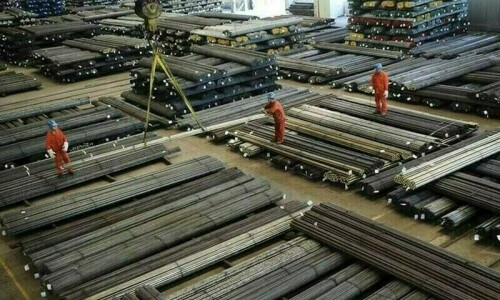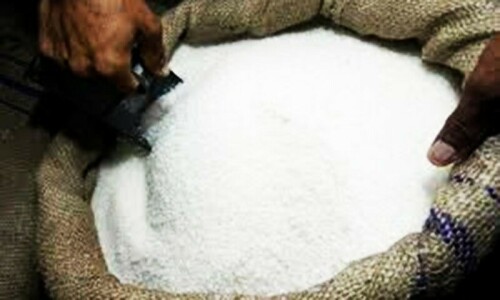ISLAMABAD: After repeated failures of the federal and provincial governments to provide sugar at the stipulated rate of Rs130 per kilogram, the Competition Commission of Pakistan (CCP) too has entered the scenario with a warning to the sugar mills.
Contrary to the rates announced by the prime minister, and several attempts by the government to maintain retail sales at Rs130 per kg, sugar prices in the markets continue to soar above Rs180 per kg in various markets across the country.
Sugar consumption is forecast to increase slightly to 6.7 million tonnes as it has continuously grown due to population growth and demand from the food processing sector.
During the last season, Pakistan produced more than 6.84m tonnes of sugar, which is expected to rise in 2024-25.
Govt fails to ensure sweetener sells at Rs130 per kg
With an undue increase of Rs30 per kg in the retail price, the additional profit for the supply chain would be more than Rs200 billion.
Given this alleged massive siphoning from the consumers, the CCP on Tuesday stated that it was closely monitoring the ongoing sugar crisis and warned that strict enforcement and policy actions will be taken if any anti-competitive activities are found.
The CCP has been working to curb cartelisation in the sugar industry, promoting fair competition and protecting consumers.
The CCP inquiry launched in 2020 revealed that sugar mills were prima facie engaged in price-fixing and controlling supply through coordinated actions facilitated by the Pakistan Sugar Mills Association (PSMA).
As part of the investigation, the CCP also conducted raids and imposed Rs44 billion in penalties on sugar mills and the PSMA in August 2021, one of the highest fines in its history.
However, the decision was challenged in courts, and stay orders were issued by the Sindh and Lahore High Courts and the Competition Appellate Tribunal (CAT). This has delayed the recovery of penalties.
The CCP has consistently intervened to enhance transparency and competitiveness in the sugar sector.
Its first inquiry in 2009 found prima facie evidence of PSMA’s involvement in price-fixing and manipulating production and supply quotas. Consequently, the CCP issued show-cause notices to certain sugar mills and the PSMA on July 16, 2010, though the Sindh High Court subsequently stayed these proceedings.
Over the years, the CCP has issued multiple policy notes (2009, 2012, and 2021) recommending the federal and provincial governments to reduce market distortions. Key recommendations included deregulating the sugar sector, allowing market forces to determine prices, and lifting restrictions on establishing or expanding sugar mills to encourage competition.
In its latest policy note, the CCP advised the government to discontinue announcing sugarcane support prices instead of adopting a market-based pricing mechanism. This shift will ensure fair compensation for farmers while fostering efficiency and competition within the sector.
Published in Dawn, March 19th, 2025















































